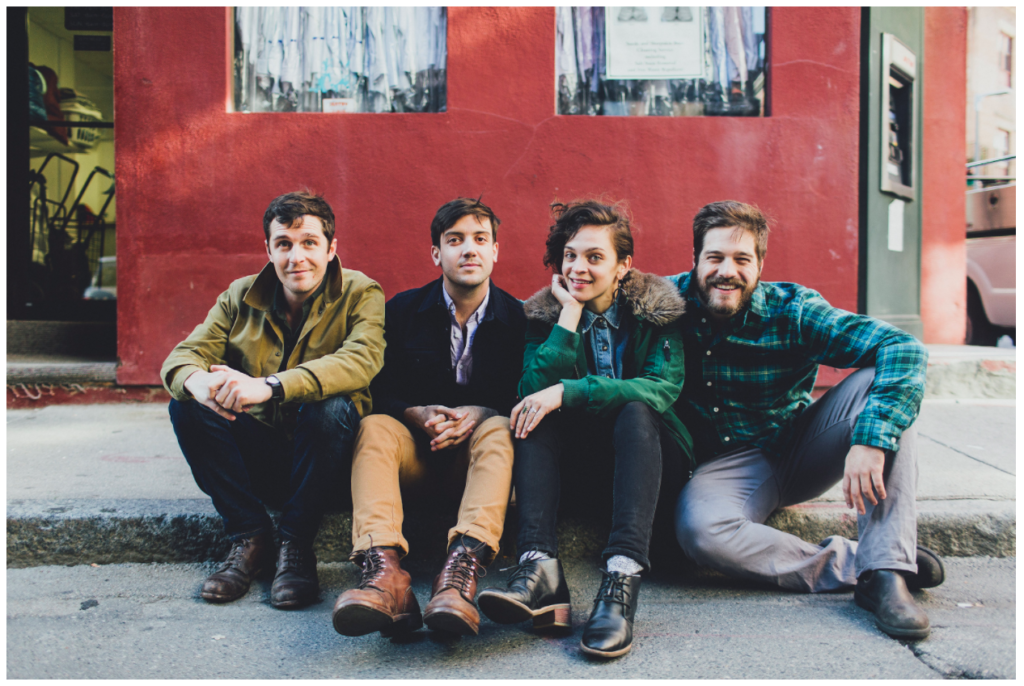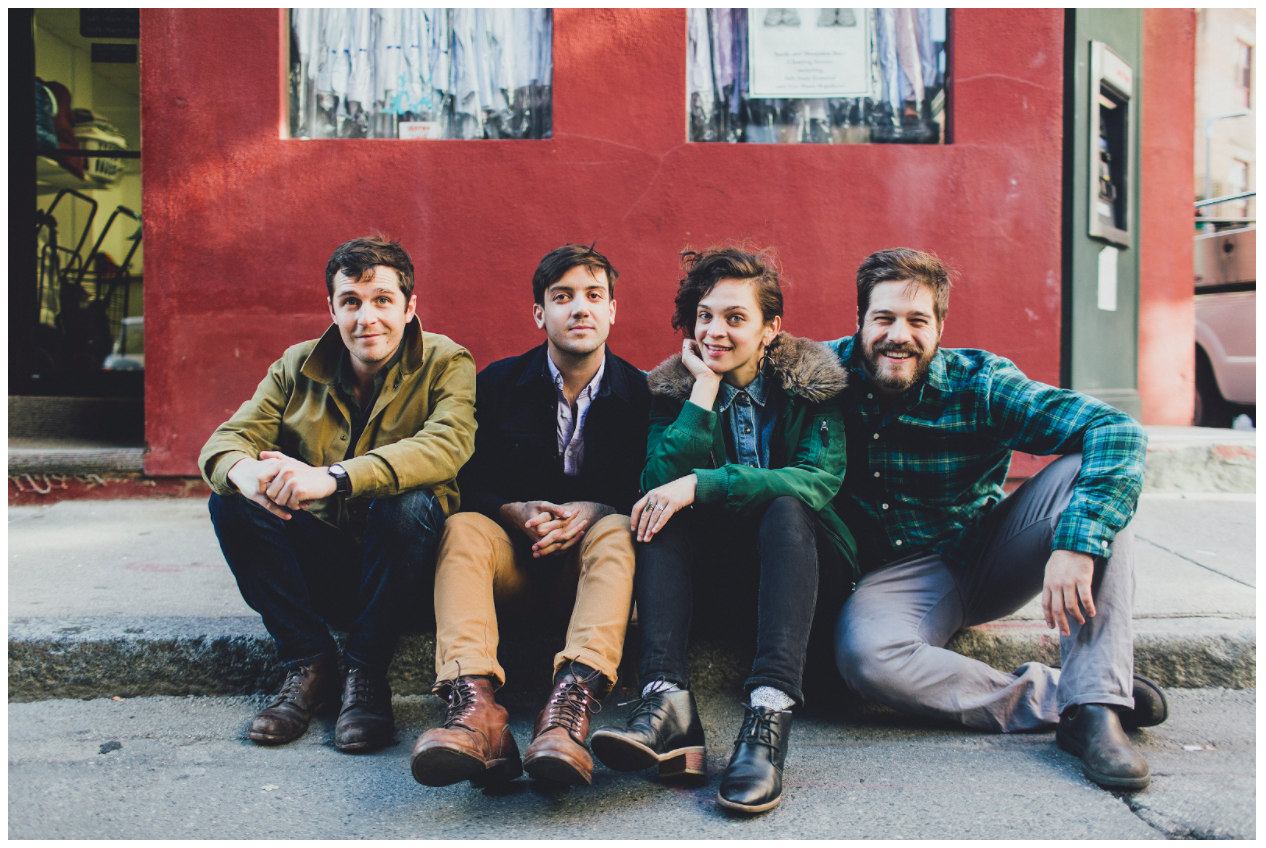Mipso: Finding the Groove
The first time I heard Mipso was the way I hear a lot of new bands: they recorded a stunning Daytrotter session (including a fantastic cover of Guy Clark’s “Dublin Blues”). I immediately checked for tour dates. I finally got to see them last fall in Portland (recap of that night is here). Their new album, Coming Down The Mountain, is excellent and is one of the best I’ve heard this year. I got to chat with guitarist and vocalist Joseph Terrell in advance of their show at The Sinclair next weekend.

RLR: I know you all got together at UNC. Did you go to college thinking you’d make a life in music, or was this something that just kept building for you?
JT: We all went to college interested in music, but none of us made music our main academic pursuit. We did have a native curiosity about North Carolina’s great music tradition: Doc Watson, Earl Scruggs, Charlie Poole. In college, I lived right around the corner from where Libba Cotten wrote Freight Train. Also the Triangle scene had a big impact on us. Once we started making music, we were so embraced and so encouraged. It’s a really fertile place for folk music.
A lot of people who make it work are actually from North Carolina, so there is this sense of a regional heritage, but people do also move here from other places. There’s a pretty good pipeline from Wisconsin – the Cook Brothers from Megafaun, for example.
RLR: What do you think you learned from working with Brad Cook on this album?
JT: First of all Brad fulfils a crucial coaching role as a producer. We’re a democratic band, which creates the best and most frustrating aspects of being in a band. Brad is incredibly astute and empathetic person. He was a trusted decision maker and tiebreaker when we were arguing or indecisive. He’s 10 years older than us, so he has another decade of being a hugely talented musician in the studio and on stage. Plus, he’s a rhythm section guy and we really wanted to focus on the rhythm and make this album groove. It was our first time recording with a drum kit. That can be a steep learning curve. The icing on top is just how much fun Brad is.
JT: I’d agree with all of that except the idea of just being in the neighborhood–we’ve always aspired to be very much together. That’s part of the whole goal of being a string band, that there is a rhythmic division of labor. So our goal has always been knowing each other’s styles and inflections inside and out, through and through, tight as a churning train. That groovy boom-chuck of an old-time band, though we’ve never been a traditional string band, has always been our white whale. But at the same time, we’ve never been metronomic. The chorus might speed up a couple clicks and that’s OK. The music breathes. The mindset in a conservatory might say that’s incorrect, that you should lock in and not deviate. But we feel like the most energetic live shows and even live studio recordings are not done with a metronome, they’re done with great connection between musicians.
Initially, playing with a drummer felt like a relinquishing of responsibility; the first few times, it felt like what I was doing wasn’t rhythmically essential anymore. But after touring with Yan Westerlund on drums for 8 months, now I feel like I’ve been freed up–I’m part of the groove, but used to feel stuck in a particular role. Now there’s a foundation I trust that let’s me step back when I need to.
RLR: I’ve heard people talk about the idea that a really great musician knows when not to play, and how to allow space and silence to do some of the work in a song–how do you all think about that, especially as it relates to vocal harmonies?
JT: It’s such an essential part of the project of being in a band, a band band, rather than a pop up project or a group that supports a songwriter’s vision. It’s about knowing each other – the personalities, the colors each person paints with. So you get to this sense of comfort and being on the same page, but there’s also a constant non-verbal communication, this is me now, this is you now. We’ve had to get good at being honest with each other, as in, maybe you shouldn’t play here. I sound like I’m talking about marriage. It’s about patience and trust and humility!
I wouldn’t describe us as “great musicians” yet. We’re good, and hopefully always getting better, but we’re still young. But we’re all confident musicians, mostly because we’ve played live together so damn much, and that sense of confidence is related to this idea of knowing when to play and when not to. It’s democratic, like I said, kind of like when someone speaks at a town hall meeting: someone who isn’t a confident speaker might speak too little or way too much.
JT: It’s changed through the course of the band. Sometimes we write individually and sometimes in pairs. Libby wrote a lot more on this record. It’s a moving target, which makes it fun, but it’s also less efficient. Our watchword as a group is to be greater than sum of the parts, so we try to bring the band’s voice to individual ideas. A song will start with at least a lyric and part of melody, and it becomes a song when we’re all sitting together. It can be a bit painstaking as we each bring our own ideas.
Bands can take different paths – they can be a White Album band, where every person controls their own silo. They can be a kind of songwriter collaborative. Or, they can do all things together. I’m definitely most fascinated by the process of getting us together and seeing what we can make that none of us would otherwise make on our own.
RLR: You guys are kind of road warriors, which is the name of the game these days. Got any tips or insights you all use as a band to make life on the road a little more enjoyable or humane?
JT: Well, the goal of staying sane on the road is to be on the road less. Every person has a breaking point with that kind of travel. It can downright make you forget who you are when you feel like you don’t have a home anymore. Maybe there are some true nomads who love being in a different place every day, and power to them, but on some level I feel bad for those people because having a home and community is such a core part of who I am. On the other hand, it’s an amazing feeling now after four years of hard, grassroots gigging that we get to play a place like The Sinclair. It’s the type of place we want to be playing: a great venue in the heart of a great music scene.
Mipso is all over New England this week: in Providence, Portland, at The Sinclair, and the Iron Horse in Northampton. They put on a great live show, so get out there and have some fun. Tour dates are here.
Photo: Sasha Israel

